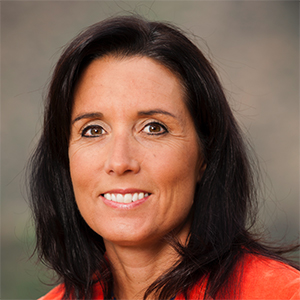Quick Links
How to Become a Health Coach
Do you take care of yourself and want to inspire others to do the same?
Becoming a health coach could be the career track for you.
Health coaches have a passion for helping people improve their health—and with that, their lives. This rapidly growing profession is an attractive career for individuals who want to make a difference in the lives of others and help them enjoy the benefits of improved well-being.
People from a wide range of backgrounds and varying levels of education and experience become health coaches, and there is a range of programs to match. Health coaching is a growing field due to a bigger focus on wellness by individuals and the healthcare industry.
“More people want to make sure they’re healthy in case they do get sick, so more are looking to a health and wellness coach to help them achieve their goals,” says Leigh-Ann M. Webster, NBC-HWC, executive director of the National Board for Health and Wellness Coaching (NBHWC), a nonprofit that has established professional standards for this largely unregulated profession.
Wondering whether health coaching is right for you? We can help you decide with details on what health coaches do, where they work, required education, and job opportunities.
What Is a Health Coach?

A health coach is a partner who motivates and encourages others—rather than an expert who counsels or offers advice.
“A health and wellness coach partners with clients or patients, depending on whether it’s a clinical or non-clinical setting, to essentially walk alongside them to help them create behavior changes in their own life that will lead to improved health outcomes and overall well-being,” Webster says.
A health coach can prescribe specific actions or non-pharmaceutical treatment, but only if they have the additional credentials, such as a dietitian’s license, to do so.
“The health coach recognizes and honors the fact that the client is the expert of his or her own life,” says Araceli De Leon, MS, an ACE-certified health coach and personal trainer.
Qualities of a Successful Health Coach
While training and credentials can prepare you to be a health coach, you’ll also need personal qualities to motivate people to make sometimes difficult changes and improve their lives.
De Leon says this career may be right for you “if you’re the type of person who believes in practicing what you preach, you love helping others, you have a passion for wanting to see people achieve their best versions of themselves, and it’s something that you live in your own daily life through continuing education, continuing growth, and the people you surround yourself with.”
Industry experts say these are some of the skills and qualities that make a successful health coach:
- Strong communicator
- Empathetic
- Excellent listener
- Non-judgmental
- Goal oriented
- Lifelong learner
- Organized
- Passionate about helping people
- Ease addressing uncomfortable topics
“Being a successful health coach doesn’t mean that you have a lot of clients, but it does mean that you have what it takes to make this a long-term career, and people will see that and they will continue to work with you,” De Leon says.
Working with Clients
Health coaches can work with clients who have a variety of goals, including losing weight, managing stress, or controlling chronic conditions like high blood pressure or diabetes. In many cases, a person might not know how to reach a goal. That’s when they may turn to a health coach.
Generally, a health coach guides a client in strategizing about how to change unhealthy behavior. According to Melinda Huffman, BSN, MSN, CCNS, CHC, co-founder of the National Society of Health Coaches (NSHC), a coach’s role includes:
- Using clinical knowledge to safely guide a patient in achieving the outcomes they desire
- Using skillful behavior change conversational skills to tap into a patient’s own motivation to change a health behavior
- Using active listening techniques
- Recognizing a patient as an equal partner by creating health plans according to the social context of the patient’s life
“If you have a set amount of time in which you’re working with the person, you have a main goal for them and you work backward by creating smaller, digestible goals that lead up to the main goal,” De Leon says.
Health coaches can work with clients in person or virtually. Many clients prefer one-on-one meetings, but others thrive on the motivation and support of group meetings with others who have similar goals.
While some clients may need only one or two sessions with a health coach to get on track, others may see a coach for weeks or months as they take a series of steps to make lifestyle changes.
Career Paths
There are many career paths for a health coach. Your opportunities will depend on your education and expertise and whether you specialize or pursue a certification, like those offered by the NBHWC and the NSHC. If you prefer the structure of full-time, relatively stable work, a coaching role with a health insurance company or a business that offers wellness services for employees might appeal to you. Private gyms or community fitness centers have full- and part-time positions with flexible hours.
Coaches who have a background in healthcare, perhaps as a medical assistant or a nurse, may work in a physician’s office or at a hospital as part of a patient’s healthcare team.
Many health coaches have their own businesses and set their own hours. Some coaches in private practice also work as motivational speakers or conduct group coaching for people who have similar goals.
“There are a lot of coaches who decide they want to be self-employed, so they will develop a niche and may get additional certificates or certifications that support their niche in the marketplace,” says Webster.
For example, a health coach who wants to focus on helping patients improve wellness to prevent diabetes could complete the federal Centers for Disease Control’s National Diabetes Prevention Program training, which would prepare them to work with these patients.
Health Coach versus Nutritionist versus Personal Trainer
Since the concept of health coaching is relatively new, it’s easily confused with other professions that provide services that can complement coaching.
If you’re planning a career as a health coach, consider how this role differs from other professions:
- Health coaches partner with clients to help them create lasting changes that improve their health and lower potential health risks. They typically earn a certificate from a health coaching program. They can also obtain a certification to demonstrate their expertise, although this credential isn’t required.
- Dietitians provide food and nutrition services, counseling, and education to individuals and groups. They typically earn a bachelor’s degree, train in a supervised program, and take a national exam to practice. In some states they also must be licensed.
- Nutritionists help people use food to heal, optimize wellness, and fight disease. Nutritionists typically need at least a nutritionist’s certificate to practice, but many earn a bachelor’s degree and even a master’s. Licensing also is required in some states.
- Personal trainers use their knowledge of human anatomy, basic nutrition, and exercise science to design fitness programs to help people achieve health and fitness goals. Personal trainers can earn a certificate and qualify for certification without a degree, though many have a bachelor’s in exercise or kinesiology studies.
- Life coaches guide clients through a range of changes typically aimed at improving life skills and in some cases professional performance. Life coaches typically earn a life coaching certificate and can qualify for certification.
Some life coaches earn certificates in other areas—for example, nutrition—to expand their expertise and the services they can provide.
Education Required to Be a Health Coach

There are many educational pathways to becoming a health coach. The most basic education is a non-degree certificate program, which is offered by community colleges, private health coaching schools, colleges, and universities. You can find options for in-person and online studies.
Admission requirements for coaching programs vary widely and generally fall into three categories, depending on the program:
- An associate’s or bachelor’s degree and/or professional experience in a medical or other health field
- An associate degree or higher and/or work experience in a wellness field
- A high school diploma or GED
While a health coaching program may be an attractive option for students who want to jump start a career change, it can also help clinical and wellness professionals such as nurses expand their existing services or pursue a new career focus.
A health coach certificate program typically includes health basics and coaching techniques. Some emphasize a specific approach or focus on one aspect of coaching. For example, some programs emphasize integrative medicine, an approach that considers a range of factors that influence wellness, including mind, body, spirit, and community.
Choosing a program will depend on “what a person wants, what they want their focus to be, where they’re headed in their life, and what’s interesting to them,” Webster says.
While there isn’t a universal accreditation body for health coaching programs, many schools carry “approval” or accreditation from one or more professional organizations. And in some cases, you may need to attend a specific program to be eligible to apply for a credential.
When looking at schools, consider whether they:
- Are accredited
- Include supervised coaching hours
- Offer science-based courses
Huffman says program reviews and testimonials are also valuable.
Certification
When you complete a health coaching program, you’ll earn a certificate. You can then pursue certification, which demonstrates that you have a specific level of knowledge and expertise in a profession.
While they aren’t required to coach, you can earn one of the following credentials, depending on your education and experience:
National Board-Certified Health and Wellness Coach (NBC-HWC) from the National Board for Health and Wellness Coaching
Certified Health Coach (CHC) from the National Society of Health Coaches
Unlike many other professions, health coaches aren’t required to be licensed to practice. But state and local regulations can limit the type of information you’re allowed to provide.
“We always encourage coaches to be aware of what is permissible and what is not in their state regarding the discussion of nutrition,” Webster says. “For example, if a coach decided to write out a meal plan or do something that’s not within their scope of practice, that would not be considered a violation in some states and in other states, it’s a big violation.”
Salary and Job Prospects
The field of health coaching is growing fast. While the U.S. Bureau of Labor Statistics (BLS) doesn’t report specifically on salaries for the profession, the role is similar to a health education specialist. According to the latest BLS data, health education specialists earn a median annual salary of $62,860, and the profession is expected to grow 7.2% through 2032. Much faster than the 5% average for all jobs in the nation.
One factor driving the growth is the healthcare industry’s shift to focusing on disease prevention and wellness, Huffman says. Coaches are also gaining increasing recognition and acceptance as part of healthcare teams, Webster says.
Since 2020, the American Medical Association (AMA) has been tracking health coaching services to assess their use and effectiveness. This data could be used to support AMA acceptance of health coaching as a medical service at some time in the future.
“I think having that additional recognition has really placed health and wellness coaching on the map, particularly in healthcare,” Webster says.

Written and Reported by:
Anna Giorgi
Contributing Writer
With professional insight from:

Araceli De Leon, MS
ACE-certified Health Coach and Personal Trainer

Melinda Huffman, BSN, MSN, CCNS, CHC
Co-Founder of the National Society of Health Coaches

Leigh-Ann M. Webster, NBC-HWC
Executive Director of the National Board for Health & Wellness Coaching
